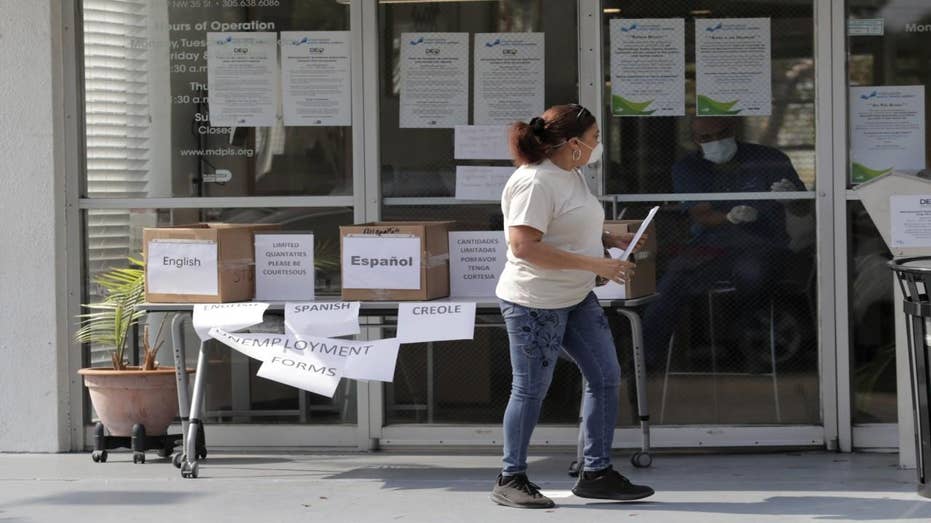Some states forced to restore $300 unemployment benefits after jobless Americans sue
Maryland, Indiana ordered by judges to reinstate $300-a-week unemployment benefit
Unemployment rates will take a while to come down: Former Chase economist
Former Chase chief economist Anthony Chan on high unemployment claims and the labor market recovery.
A growing number of jobless Americans are filing lawsuits against their respective states seeking to restore a pandemic relief program that paid out an extra $300 a week in unemployment benefits – and some are winning.
Judges in Maryland and Indiana have ruled the two states must resume paying the extra jobless aid that had been halted earlier this year until the lawsuits are resolved. The rulings mean that roughly 500,000 unemployed workers in those states should see a continuance of their benefits, according to an estimate from the National Employment Law Project (NELP).
Maryland and Indiana are among a group of 26 states, all but one led by Republican governors, prematurely ending one of three federal unemployment programs that provided jobless workers with an extra $300 a week, on top of their regular state benefits, and extended eligibility for contract workers as well as those who had exhausted their regular state benefits.
JOB SEARCHES SPIKED IN STATES PREMATURELY ENDING UNEMPLOYMENT BENEFITS
Unemployed residents in Indiana were the first to take legal action in an attempt to block the state's push to end pandemic unemployment benefit programs; in mid-June, two nonprofit groups sued Gov. Eric Holcomb, arguing that he had "violated the clear mandates of Indiana's unemployment statute — to secure all rights and benefits available for unemployed individuals."
A state judge ruled at the beginning of July that Indiana must continue paying the federal money to roughly 230,000 Hoosiers until the lawsuit is decided, arguing a "preponderance of evidence" suggested the early termination of the program violates state law.
"A loss of housing or medical care and the inability to provide food, shelter and adequate childcare for a family constitute irreparable harm pending resolution of this cause of action and are not adequately compensable by an award of damages," Marion Superior Court Judge John Hanley wrote in his decision.

Although the state attempted to keep the benefits halted, the state Court of Appeals denied the request, and Indiana once again began paying the $300 supplement last week. The payments will be retroactive to the week ending June 26; the state stopped the pandemic unemployment programs as of June 19.
"There will be no gap in payments for eligible claimants," said Regina Ashley, chief unemployment insurance officer at the state Department of Workforce Development.
In Maryland, a Baltimore judge in a preliminary injunction ordered the state to "immediately take all actions necessary to ensure that Maryland residents continue to receive any and all expanded and/or supplemental unemployment benefits." Maryland Gov. Larry Hogan, a Republican, said the state was complying with the ruling from Judge Lawrence Fletcher-Hill.
MORE JOBLESS AMERICANS ARE SUING STATES FOR ENDING UNEMPLOYMENT BENEFITS
Similar lawsuits in Arkansas, Ohio, Texas, Florida and Oklahoma are still pending.
The unemployment programs, which Congress created in March 2020 and voted twice to extend, are not poised to expire until Sept. 6, 2021. GOP lawmakers have blamed the extra unemployment aid for anemic job growth in April and May, although economists have also cited a lack of child care and fears of contracting COVID-19 for the hiring shortage.
The average state unemployment benefit is about $330 per week. With the federal supplement, Americans are receiving about $630 in weekly unemployment benefits. (For comparison's sake, that's about $32,000 annually, or roughly double the nation's minimum wage.)
There remain about 6.8 million fewer jobs than there were in February 2020, before the pandemic shut down broad swaths of the nation's economy.





















